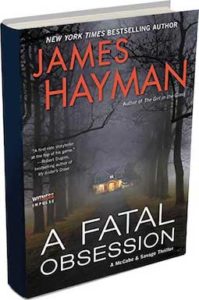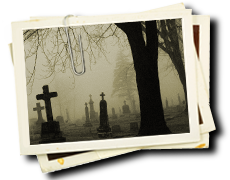Firing Blind in Iowa
James Hayman: Imagine a blind cop or maybe a private eye whose sense of hearing or maybe smell is so acute he/she can use it to ferret it out a bad guy and make the arrest. It makes an appealing premise for the hero of a crime series. And its actually been tried a few times in the past, mostly on TV.
Actor James Franciscus starred as blind insurance investigator Mike Longstreet (who I don’t think carried a gun) in a TV series way back in the 70’s that ran for a couple of seasons. Six or seven years ago, Steven Bocheo, whose other credits included major hits like Hill Street Blues and NYPD Blue, tried it again with a short lived show called Blind Justice. And more recently the PBS series Mystery ran a show called Second Sight about a British police detective named Ross Tanner who manages to hide his gradual loss of sight over the course of two seasons and copes by developing his other senses.
In detective novels, the uncanny enhancement of untapped senses by blind detectives has also been a running theme. Way back in 1914 a writer named Ernest Smith wrote a successful series featuring a sightless sleuth named Max Carrados, who sharpens his hearing skills till he’s able to perceive sounds normally inaudible to humans. He also gathers evidence through his bloodhound-like sense of smell. And a 1941 mystery titled The Odor of Violets featured a blind detective who also solved crimes by development of his other senses.
However crime writers on TV and in fiction, even those with blind heroes, have generally shied away from having them pack heat or blast away at a bunch of bad guys with Glock 17’s. And for good reason. A, It sounds imbecilic. B, it is imbecilic. And C, having a blind cop blasting away at a bunch of innocent bystanders because he thinks they smell like the bad guys would tend to make him unpopular with readers..
Today, however, reality has once again trumped fiction. The Iowa state legislature recently passed a law that, according to ABC News, “allows the legally or completely blind to acquire permits to carry guns in public.”
Applicants for gun permits in Iowa are now only required to take a firearm safety course to obtain a permit. But the course can be taken online and does not include a vision test or vision requirement. Which means that in Iowa, blind people now have the same right to carry guns as sighted persons and the same right to use them in circumstances of “self-defense.” Apparently, it didn’t much matter to the legislators who passed the bill that blind people can’t see who they’re shooting at. It would be sublime justice, if the first victim turned out to be a legislator.
Nonetheless, some people in Iowa think the new law is just swell. Several advocates for the blind say the law squares nicely with the Americans with Disabilities Act, and that the same restrictions that apply to sighted people should also apply to the blind when it comes to guns.
While personally, I’m all for giving equal opportunity to people with disabilities, the idea of giving the blind equal access to guns scares the hell out of me. I think the idea’s ridiculous. And more than a little frightening. Using Iowa’s logic, shouldn’t the state start granting drivers licenses to the blind because they should have equal access to transportation. Or perhaps commercial pilots licenses to give the blind equal access to relatively high-paid jobs in commercial aviation.
I can see it now. There you are, settling uncomfortably into your cramped window seat and buckling your seatbelt. Suddenly a confident and manly voice comes over the intercom. “Welcome aboard Iowa Airlines Flight 232 from Des Moines to Cedar Rapids. I’m your pilot Captain Dick Daring and I should mention that I’ve been totally blind all my life. But don’t worry about a thing folks. I’ve got a fabulous sense of smell and I’ve been sniffing my way to Cedar Rapids airport for years now.”
The ABC News report quotes Cedar County (Iowa) Sheriff Warren Wethington: “There is no reason why someone who is blind, if properly trained, can’t operate or use a handgun or any weapon just as safely as any person who isn’t visually impaired. I have a permit to carry. It doesn’t restrict me in times of low vision. My permit is still good in heavy fog, it’s good in low light, it’s good anytime that my vision is obstructed. If I’m in a room that is low light or total darkness, my permit is still valid, even if I can’t see better than a totally blind person.”
Wethington doesn’t address the question of whether he or any other sighted person ought to be using his or her gun either in “total darkness” or in “heavy fog.” But then he’s the Sheriff.
There is some opposition to this local version of “Blind Justice,” but it’s not very vociferous. “I have some reservations about full access for people who are blind,” said Patrick Clancy, superintendent of the Iowa Braille and Sight Saving School in Vinton, Iowa. “That’s just because shooting requires a lot of vision to be accurate outside of controlled settings with safety courses.” No kidding, Patrick.

